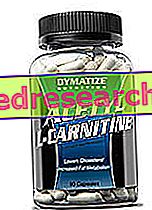Gingivitis is an inflammatory process that affects the gums.
Consequences
Complications of neglected gingivitis
In many cases gingivitis is the onset form of parodantal disease, also known as paradontitis, pyorrhea, periodontosis or periodontal disease; such affection, as the name suggests, concerns the periodontium, that is the set of structures that surround the tooth (the gum, the bone that supports it, the cement of the root and the ligament that holds it anchored to the bone).

Causes and risk factors
Due to this particular etiology and evolution, gingivitis is considered an essentially bacterial disease. Despite this, the inflammatory process can also be caused by traumatic insults of the gum itself, for example by too vigorous brushing. Among the risk and aggravating factors we mention the smoke (for the toxic substances it contains), pregnancy and puberty (the strong hormonal fluctuations favor the onset of gingivitis), diabetes, the inevitable genetic predisposition, stress in gender and all the other conditions that lead to a weakening of the immune defenses, favoring the bacterial action (leukemia, Addison's disease, malnutrition, HIV etc.). Also some drugs, such as antihypertensives, cortisone drugs, hormonal therapies - including the contraceptive pill - antidepressants and antiepileptics, can increase the volume of the gums, thus negatively affecting oral health; sometimes, finally, the fault can also be the dentist and his restoration interventions poorly affected or worsened by time.
An uncommon but particularly severe form of gingivitis is the so-called acute ulcerative necrotizing gingivitis, which manifests itself in acute form with fever, ulceration, marked halitosis and intense pain. This form occurs mainly in debilitated patients and is due to the synergistic infection of specific anaerobic microorganisms.
Symptoms
Healthy gums have a pink complexion and a hard-elastic consistency, they do not bleed when brushed and form regular arches around the teeth. On the contrary, in the presence of gingivitis symptoms such as bad breath, gum bleeding with brushing (or for other modest stimuli such as chewing of hard foods), strange taste in the mouth and change in color (redness), consistency (springs) are quite frequent or shape (swelling) of the gums.
In an advanced stage the inflammation is accompanied by more severe symptoms; spaces may appear between the teeth, gingival recessions with root exposure and excessive tooth mobility.
Gingivitis treatment
In the course of the article we have repeatedly stressed the leading role of bacteria and dental plaque in the onset of gingivitis. The first treatment, also very useful for preventive purposes, is therefore based on the common practices of oral hygiene, with toothbrush and dental floss. In the same way the main risk factors will be eliminated or corrected, with particular reference to abstention or smoke reduction. The dentist, for his part, will be able to intervene by eliminating the deposits of tartar from the dental and radicular surfaces and correcting other irritating factors (caries, protruding restorations, etc.). Often, these rules are more than sufficient to positively resolve gingivitis, with complete healing of the tissues without any residual damage. Furthermore, the importance of nutrition should not be underestimated, since vitamin or calcium deficiencies can aggravate the problem.
In the presence of gingivitis it is advisable to consult your doctor or dental hygienist to assess the problem and make a suitable remedy; the spontaneous use of mouthwashes or special toothpastes, which, if of the wrong type or in excessive doses, can cause damage is not recommended.



